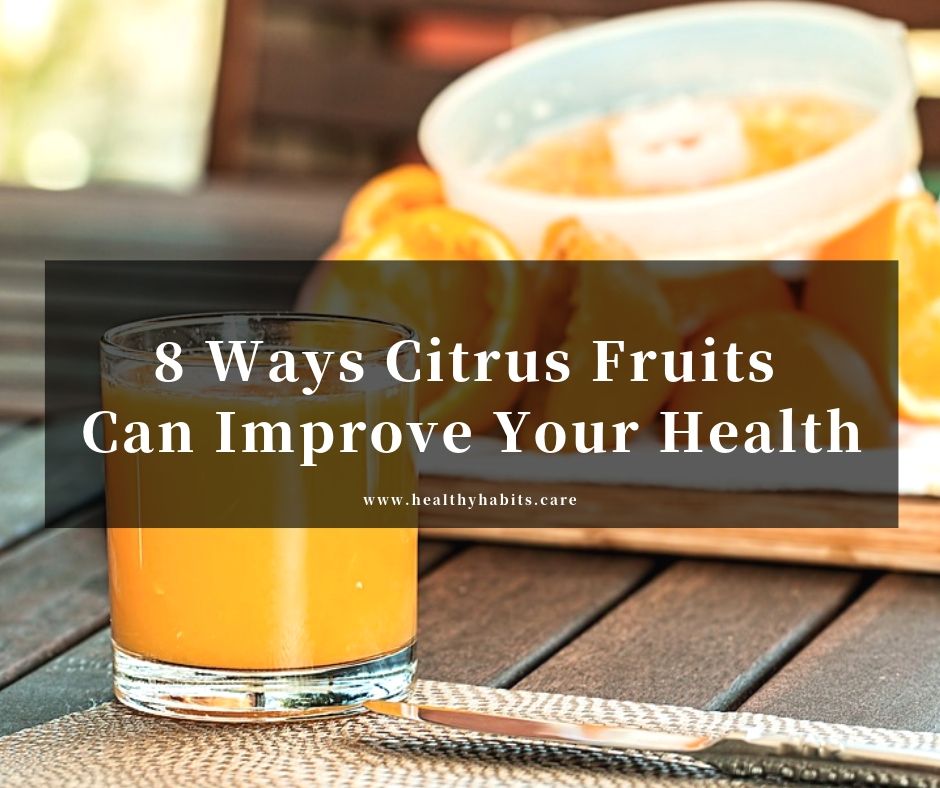
You’ve heard the expression that an apple a day keeps the doctor away…but what about an orange? Citrus fruits—including lemons, limes, oranges, grapefruit, pomelos, tangerines, and kumquats—are excellent sources of antioxidants, vitamins, and nutrients, including vitamin C, fiber, folate and potassium.
“Research has shown that many of these [nutrients] can protect us against chronic conditions including cancer and heart disease and may help support brain health and reduce the risk of kidney stones,” says Vandana Sheth, RD, a spokesperson for the Academy of Nutrition and Dietetics.
Here are 8 research-backed health benefits of citrus fruits!
They can help boost your brain health
Antioxidant-rich flavonoids in citrus fruits may help improve brain health and reduce the risk of neurodegenerative disease like Parkinson’s disease and Alzheimer’s, says Sheth.In fact, a 2017 study from the British Journal of Nutrition surveyed more than 13,000 elderly Japanese people and found that those who ate a daily serving of citrus fruits were 23 percent less likely to be diagnosed with dementia than those who dug in twice a week or less. “These diseases typically happen due to a breakdown of cells, and flavonoids help reduce that breakdown,” Sheth explains.
They can help reduce your risk of kidney stones
A higher-than-normal concentration of minerals in your urine can cause the formation of kidney stones, or very painful mineral crystals. One particular type of kidney stone is caused by low levels of urinary citrate. A large 2014 study from Urology found that kidney stones are more common in people who eat fewer citrus fruits. “Citrus foods can raise levels of citrate in our urine, which lowers the risk of those types of kidney stones,” explains Sheth.
They can help you lose weight
At a whopping four grams of fiber per fruit, oranges and grapefruit help stabilize your blood sugar to keep you fuller for longer—especially when paired with food that’s rich in protein or healthy fats, like plain yogurt or scrambled eggs. Of course that means you have to consume the whole orange—not just the juice, which is much higher in sugar per serving (21 grams in one cup of OJ versus 14 grams in a large orange).
The juice is also missing the fiber, which helps you lose weight in the first place.The amount of work involved in eating makes a difference when you’re trying to lose weight, as it takes time to peel and eat an orange, says Alexandra Caspero, RD.
They can help protect your heart
A small 2006 study from the Journal of Agricultural and Food Chemistry found that people who underwent coronary bypass surgery had lower levels of LDL cholesterol, triglycerides, and cholesterol after just one month of eating one grapefruit per day.
“Several compounds [in citrus fruits] can improve markers for heart health, including soluble fiber and flavonoids,” says Sheth. More than 100 phytochemicals in citrus fruits reduce heart-harming inflammation, Caspero adds, while the fiber they contain helps lower LDL cholesterol.
Citrus fruits are also a great source of folate, at roughly eight percent of your daily recommended intake. “Folate naturally reduces levels of the amino acid homocysteine, and increased levels of homocysteine has been shown to increase heart disease risk,” says Caspero. Keep in mind that grapefruit interacts with some medications, including drugs used for high blood pressure, cholesterol and depression.
They can guard against digestive cancers
A 2017 review paper in Frontiers in Pharmacology analyzing 22 studies of citrus found that the research strongly suggests the fruit may help fight cancer. “Citrus fruit tends to show more significant protection against cancers of the digestive tract, including mouth, esophageal, stomach and colon cancers, compared to other fruits,” says Caspero. “The vitamin C, carotenoids and flavonoids in fruits and veggies, including oranges, have a synergistic relationship in helping to prevent cancer.”
They can help boost your absorption of iron
The high levels of vitamin C in one orange (68 mg), grapefruit (77 mg), lemon (18 mg) or lime (13 mg) helps your body to better absorb iron. That’s especially important if you’re a vegetarian or vegan, since your body can’t absorb the non-heme iron found in plants as effectively as it can the heme iron in meat and seafood. “If you’re getting iron mostly from plants, pairing it with vitamin C can increase your absorption by five to six times,” says Caspero.
They’ll help you stay hydrated
While your first instinct is to grab a water bottle if you’re thirsty, roughly one quarter of all the water we consume comes from the food we eat—and oranges are about 90 percent water. “Water isn’t the only way to stay hydrated,” says Caspero.
They support your immune system
Oranges are famously high in vitamin C, an antioxidant that helps reduce free radical damage to your DNA. Contrary to popular belief, vitamin C won’t keep you from getting sick—but research has shown it may slightly reduce the duration and severity of the common cold. “We’re talking by a few hours. Don’t think you’re going to ward off flu season, but it helps,” says Caspero. Since vitamin C is water-soluble—meaning our bodies don’t hold onto it like the fat-soluble vitamins A, D, E and K—it’s important to eat a bit every day, she notes.

























